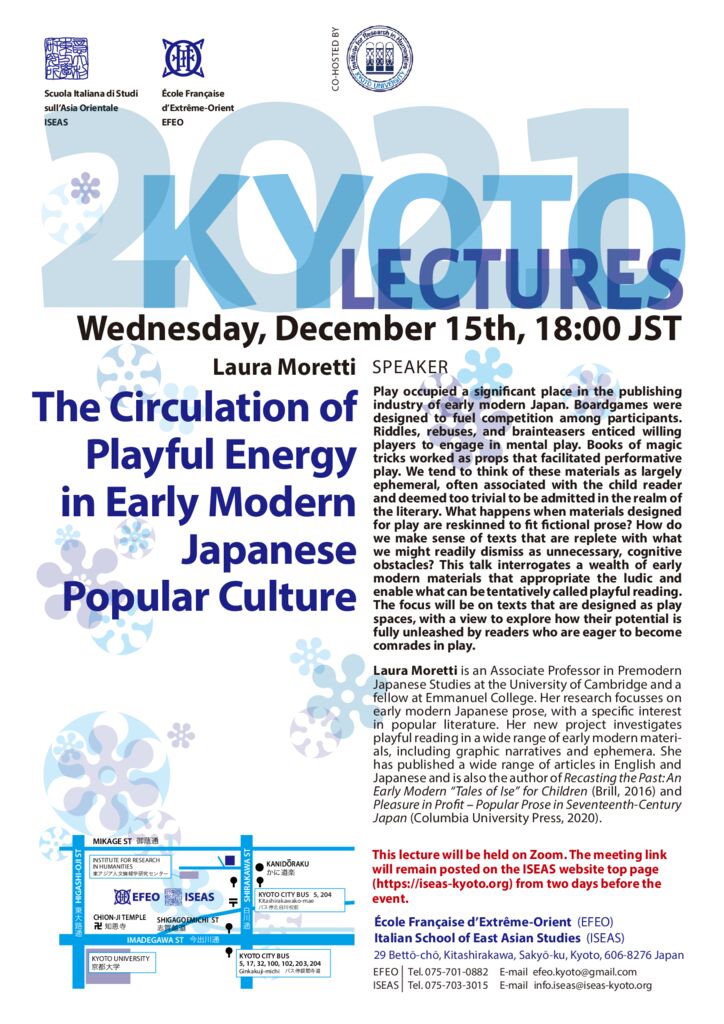Play occupied a significant place in the publishing industry of early modern Japan. Boardgames were designed to fuel competition among participants. Riddles, rebuses, and brainteasers enticed willing players to engage in mental play. Books of magic tricks worked as props that facilitated performative play. We tend to think of these materials as largely ephemeral, often associated with the child reader and deemed too trivial to be admitted in the realm of the literary. What happens when materials designed for play are reskinned to fit fictional prose? How do we make sense of texts that are replete with what we might readily dismiss as unnecessary, cognitive obstacles? This talk interrogates a wealth of early modern materials that appropriate the ludic and enable what can be tentatively called playful reading. The focus will be on texts that are designed as play spaces, with a view to explore how their potential is fully unleashed by readers who are eager to become comrades in play.
Laura Moretti is an Associate Professor in Premodern Japanese Studies at the University of Cambridge and a fellow at Emmanuel College. Her research focusses on early modern Japanese prose, with a specific interest in popular literature. Her new project investigates playful reading in a wide range of early modern materi-als, including graphic narratives and ephemera. She has published a wide range of articles in English and Japanese and is also the author of Recasting the Past: An Early Modern “Tales of Ise” for Children (Brill, 2016) and Pleasure in Profit – Popular Prose in Seventeenth-Century Japan (Columbia University Press, 2020).
The meeting link will remain posted on the ISEAS website top page from december 13.
